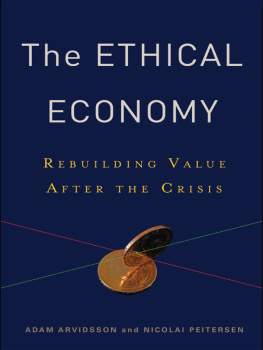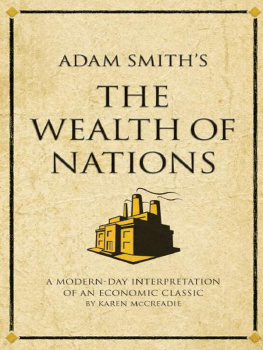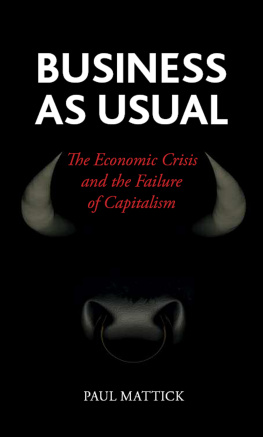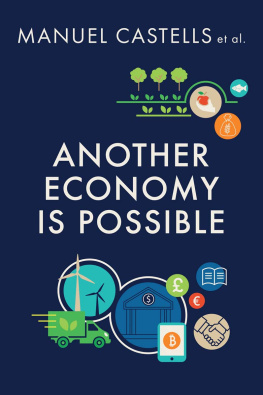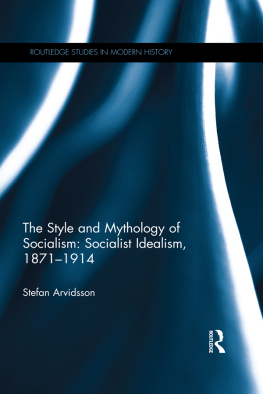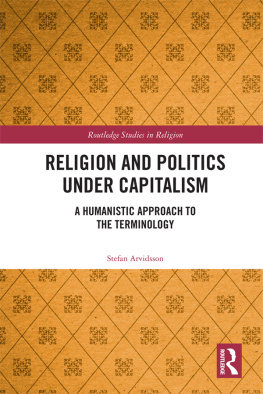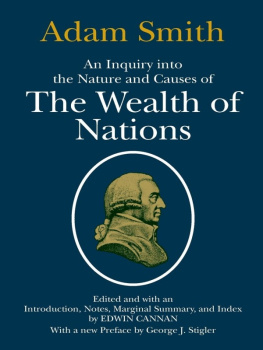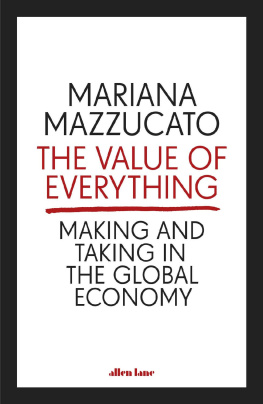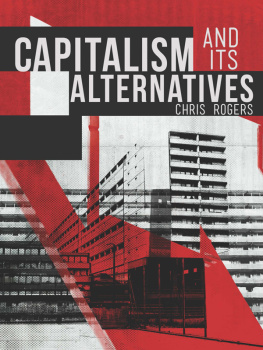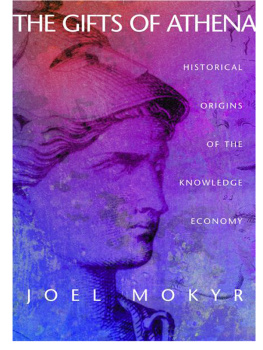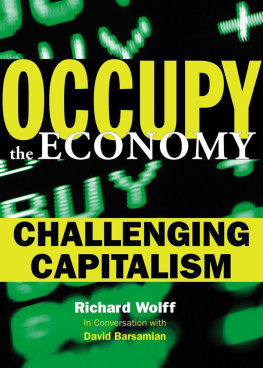THE ETHICAL ECONOMY
THE ETHICAL ECONOMY
REBUILDING VALUE
AFTER THE CRISIS
Adam Arvidsson
Nicolai Peitersen
COLUMBIA UNIVERSITY PRESS NEW YORK

COLUMBIA UNIVERSITY PRESS
Publishers Since 1893
NEW YORK CHICHESTER, WEST SUSSEX
cup.columbia.edu
Copyright 2013 Adam Arvidsson and Nicolai Peitersen
All rights reserved
E-ISBN 978-0-231-52643-2
Library of Congress Cataloging-in-Publication Data
Arvidsson, Adam.
The ethical economy : rebuilding value after the crisis / Adam Arvidsson and Nicolai Peitersen.
pages cm.
Includes bibliographical references and index.
ISBN 978-0-231-15264-8 (cloth : alk. paper)ISBN 978-0-231-52643-2 (ebook) 1. EconomicsMoral and ethical aspects. 2. CapitalismMoral and ethical aspects. 3. Economic developmentMoral and ethical aspects. 4. Value. 5. Social responsibility of business. I. Peitersen, Nicolai. II. Title.
HB72.A768 2013
174.4dc23
201300945
A Columbia University Press E-book.
CUP would be pleased to hear about your reading experience with this e-book at .
Jacket design: Thomas Stvan
References to websites (URLs) were accurate at the time of writing. Neither the author nor Columbia University Press is responsible for URLs that may have expired or changed since the manuscript was prepared.
CONTENTS
At the same time, activists are more amenable to working with corporations. The social movements that we remember from Seattle and Genua are becoming social enterprises with which large corporations can function as partners rather than enemies. The Naomi Klein era is over, replaced by the likes of Umair Hacque and John Grant, who preach a reformed capitalism ready to address wider social concerns.
Although a lot of this is green-washing, a lot of it is sincere as well. Companies and managers have a wide range of reasons to trash Milton Friedman and his recommendation to focus on profits alone, and to try to become a Force for Good (as one successful UK-based initiative is called). These reasons range from the obviouswe are all in the same boat on a sinking planet (if such an expression can be allowed); public opinion is demanding a social conscience; most people who work in large corporations are conscious moral agents who want to feel that they are doing something meaningful or at least something that is not downright destructive; green and ethics are great marketing opportunities that can open up new areas of businessto less obvious motivations that we will describe in this book and that we actually believe are more important. (The ability to create cohesion around a common cause is, for example, very useful as a motivation for creative knowledge workers.) The question that we want to pose in this book is not about the sincerity of it all (we leave that to Naomi Klein). What we want to find out is whether it can work. Or rather, can the ethical turn that we are presently witnessing among corporations, consumers, investors, employees, activists, and other stakeholderstheir desire to address a number of concerns that go beyond the profit motivebecome a basis for a new social contract in which the interests of business and the interests of society can coincide? In other words, can there be such a thing as an ethical economy?
We believe that there can be, but it is more complicated than the usual story about corporations acquiring a conscience out of the blue. In the main argument of this book, we suggest that the movement toward an ethical economy is driven by deep structural tendencies that are firmly related to the ways in which value is produced in the information society. And we suggest that corporate investments in responsibility and sustain-ability, however sincere, are just a surface manifestation of this. That is, the possibility of an ethical economy is inherent in the development of the means and relations of production, as Marx would have said. But its realization is contingent on active engagement and political agency by interested actors. In particular, we suggest that a necessary precondition for realizing a (more) ethical economy is the construction of a new public sphere, in which diverse value concerns can have a more direct impact on the processes by which economic values are set, and make these processes public in new ways.
But before we set out to tell that story, lets spend some more time on the concept of a social contract and why we think a new one is needed.
SOCIAL CONTRACT
Industrial societythat old textbook example of how economics and social systems are supposed to workwas built around connecting economic value creation to overall social valuesan imaginary social contract. Business was supposed to contribute to the well-being of society by furthering economic development and a growing prosperity that could trickle down the social pyramid, or be redistributed by the welfare state. Although this contract was not always respected in practice and quite intense conflicts arose as to how it should apply, virtually everybody argued that it should apply, at least in theory, and most people agreed on the basic common values: economic growth and increasing prosperity. From this perspective, even the raw profit seeking of business could be understood to be functional for the overall social good; to make a profit could be said to be an important, or even, as Milton Friedman argued, the only social responsibility of business.
Today that social contract has been shattered. Globalization and the socialization of production have undermined the national arenas in which the redistribution of wealth used to play out, and have radically diminished the power of the industrial working class, who used to be an important party to that process. Three decades of neoliberal policies have separated the market from larger social concerns and relegated the latter to the private sphere, creating a situation where there is no society, only individuals and their families, as Margaret Thatcher famously put it, and no values, only prices. Most importantly, perhaps, a growing awareness of the planetary consequences of industrial capitalism has led to questioning the very desirability of continuous economic growth, at least in its consumerist, materialist version.
Yet the new values that are emerging in our societya growing popular demand for a more sustainable economy and a more just and equal global societyhave only weak and unreliable ways of influencing the actual conduct of corporations and other important economic actors. True, a lot of companies now claim to be socially responsible and to behave in a sustainable way, but we have no way of reliably or objectively evaluating the social efficacy of their efforts. Quite paradoxically, though we are in the midst of an explosion of ethics, with more and more people routinely evaluating their everyday actions in terms of the planetary consequences of those actions (what foods to buy, where to work, how to live), there are few ways in which such ethical values can really influence the processes through which crucial decisions are made. We need a system that can create and strengthen such a link, allowing for new ways to decide the overall social value of economic value creation, and for those decisions to have tangible effects on economic value creation.
We are of course not alone in suggesting that radical economic reform is needed. After the relative complacency that marked the end of history and the ensuing belle epoque of the 1990s, the first decade of the new century brought a wealth of ideas about reforming business practices and economic systems, many of them from writers close to the business community. Similarly, the financial crisis of 2008 spurred ideas for reforming and better regulating financial markets.

